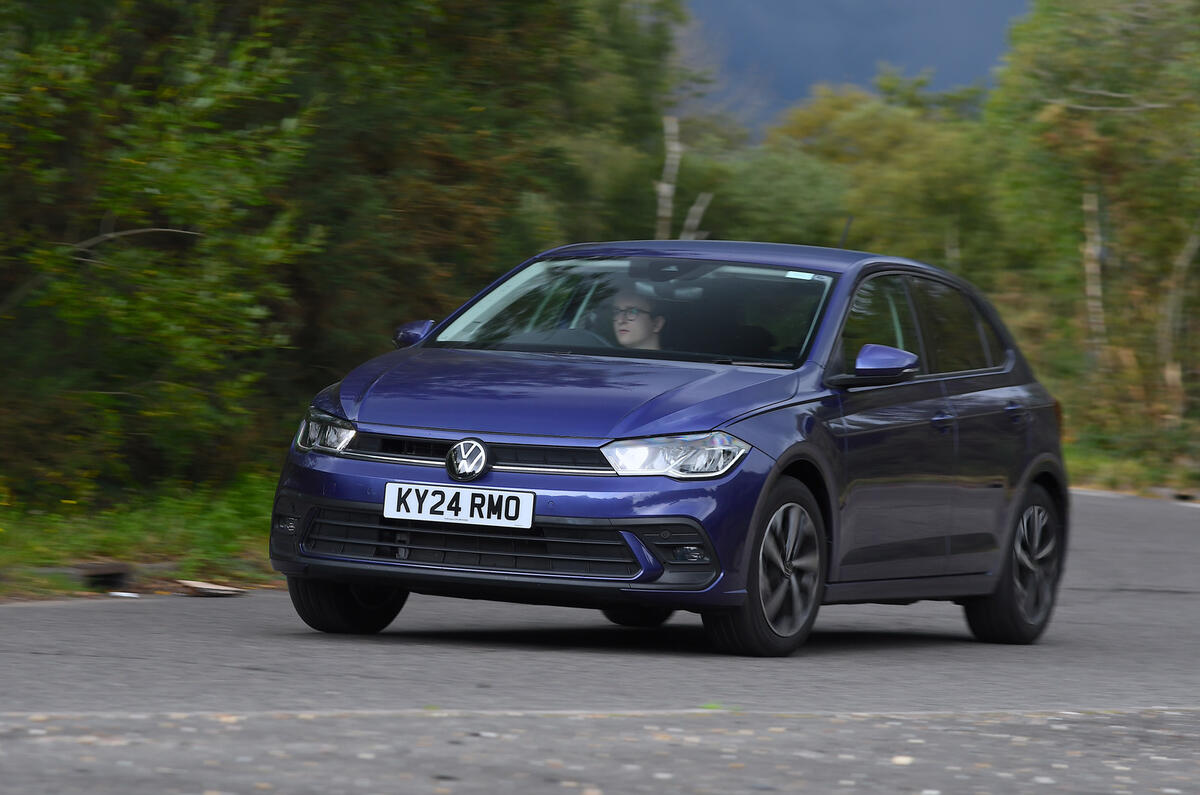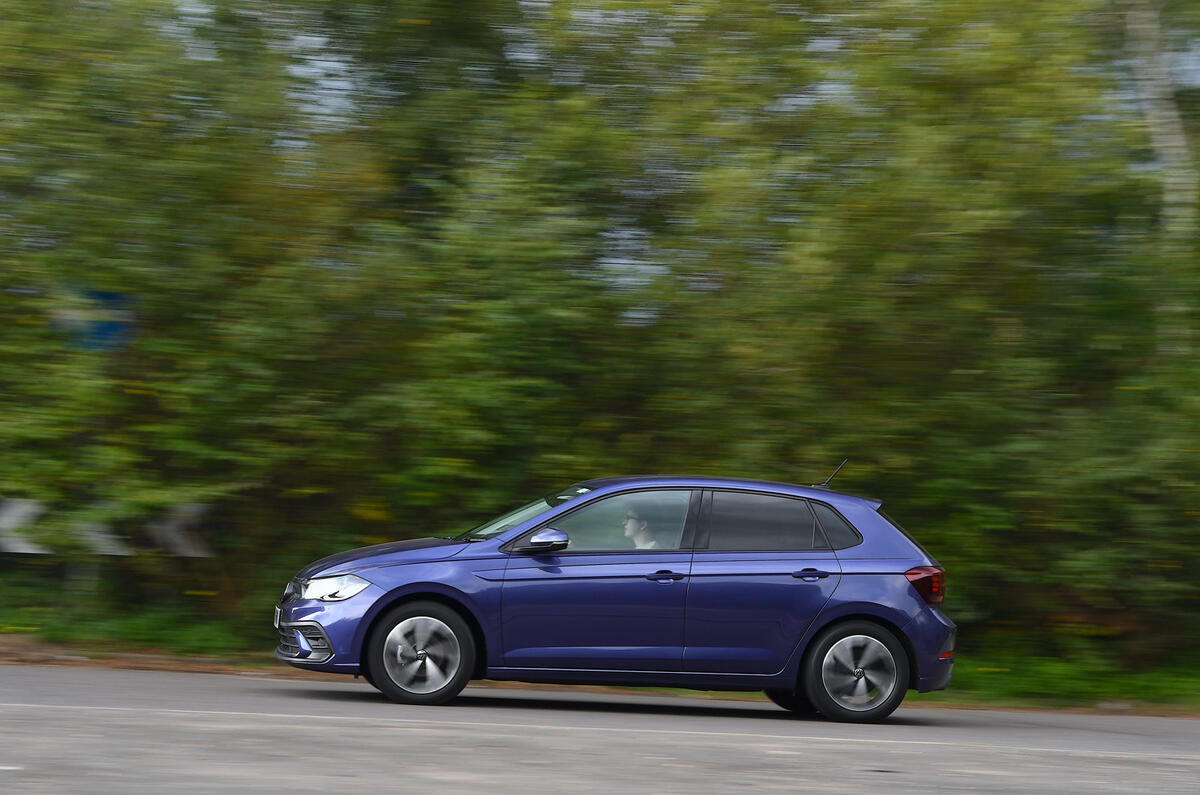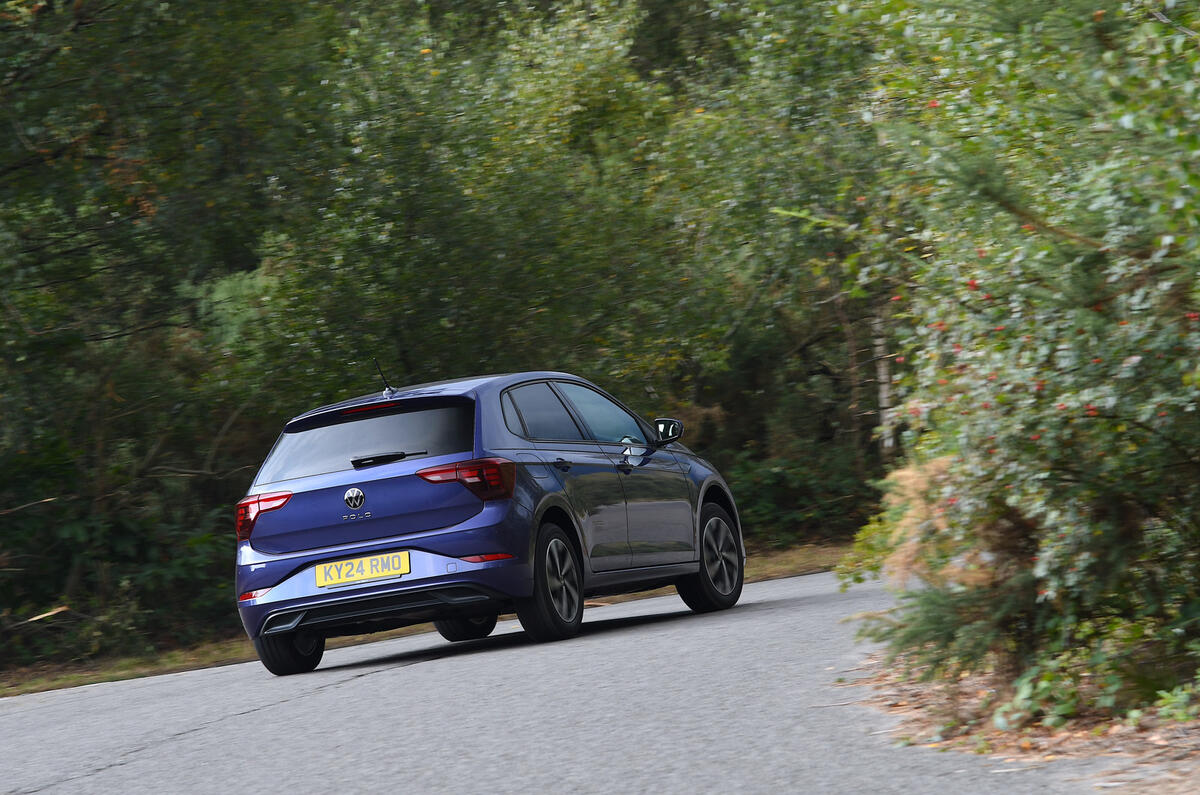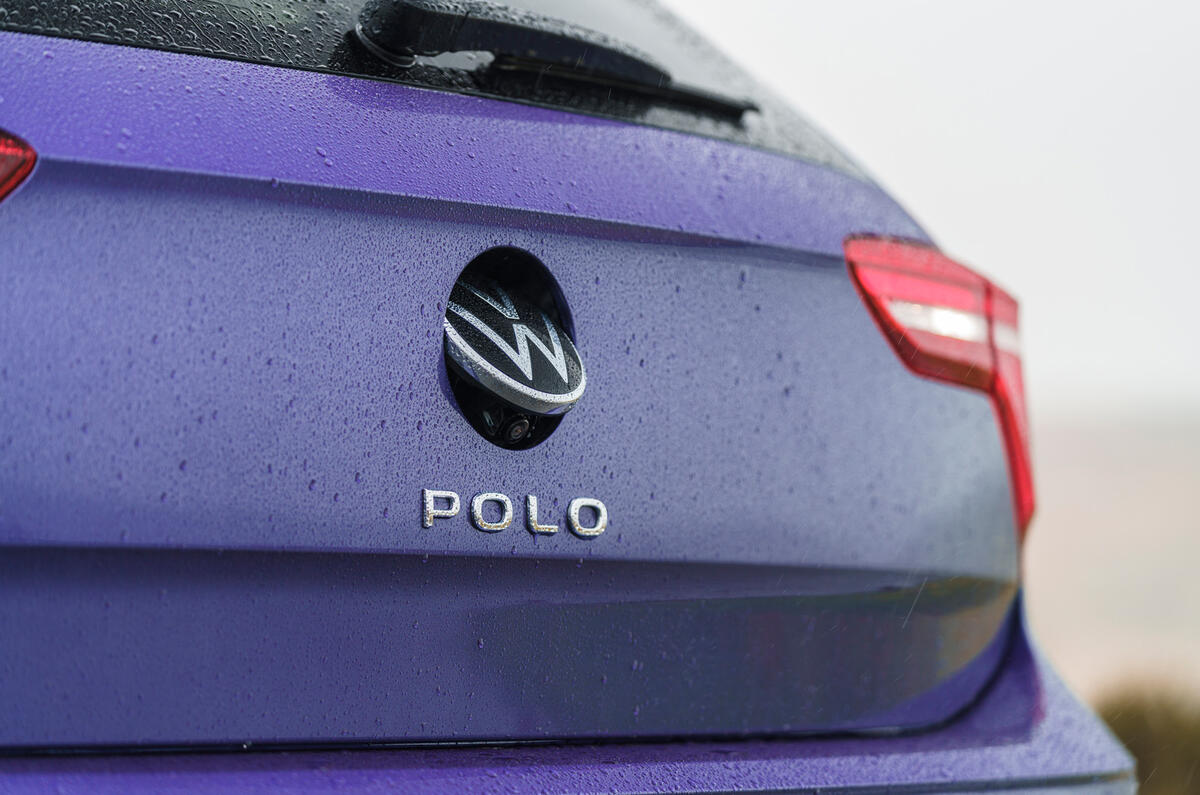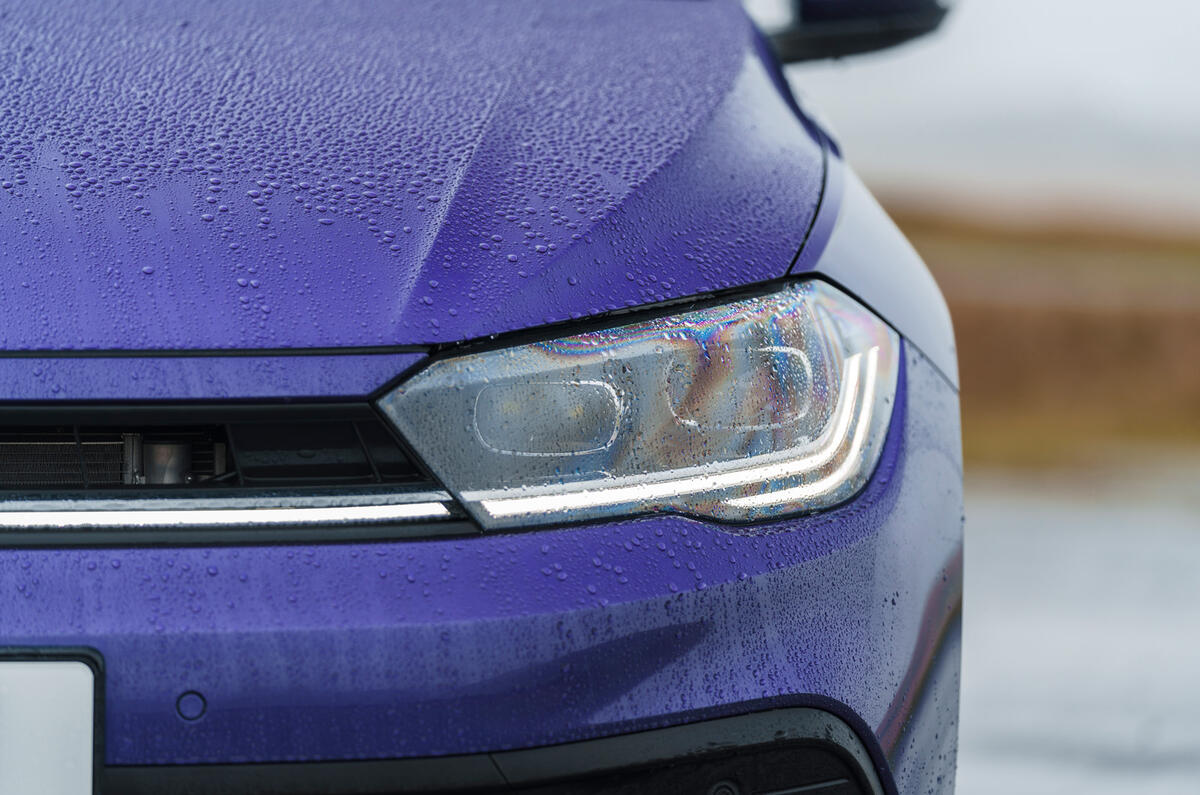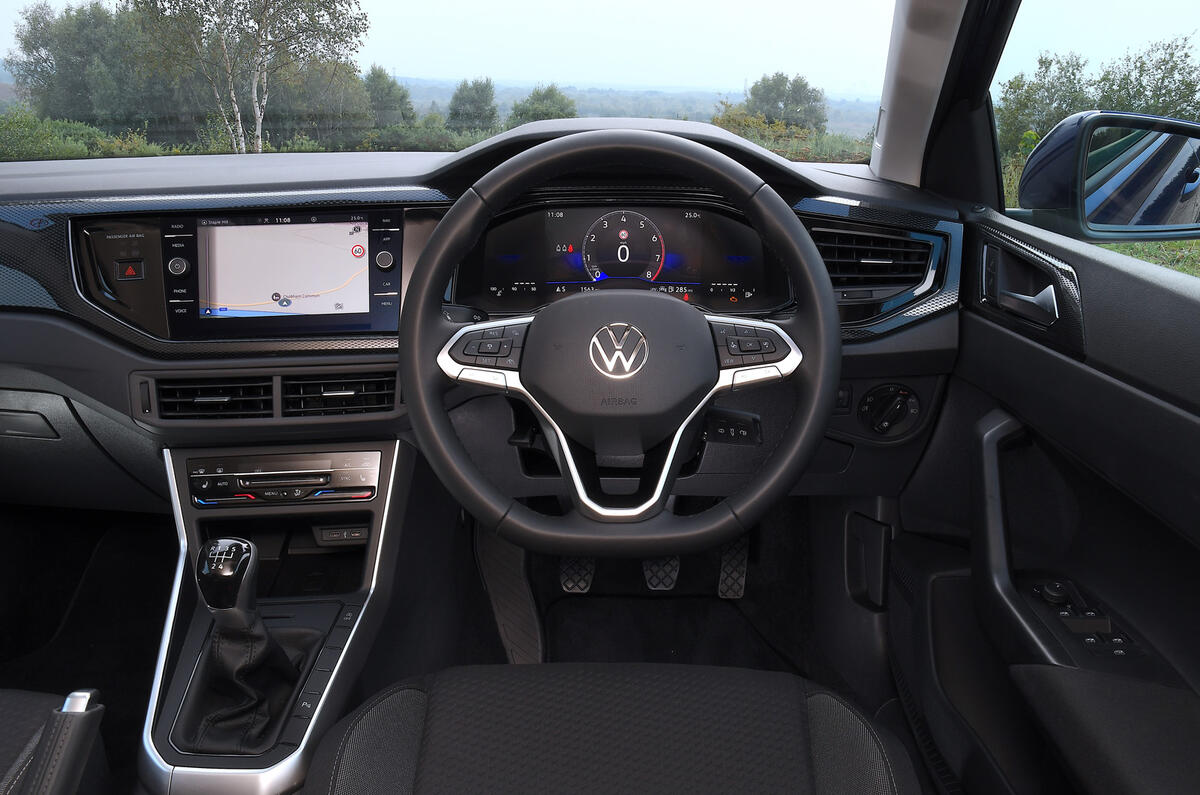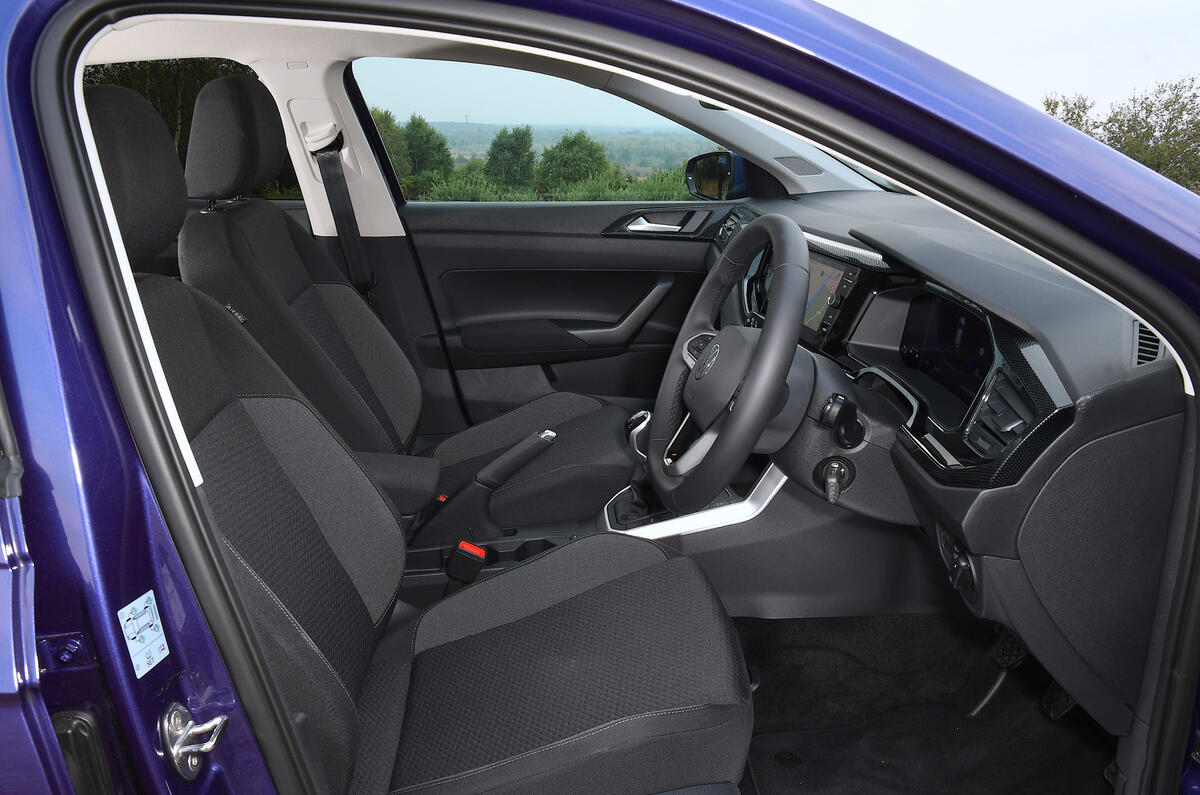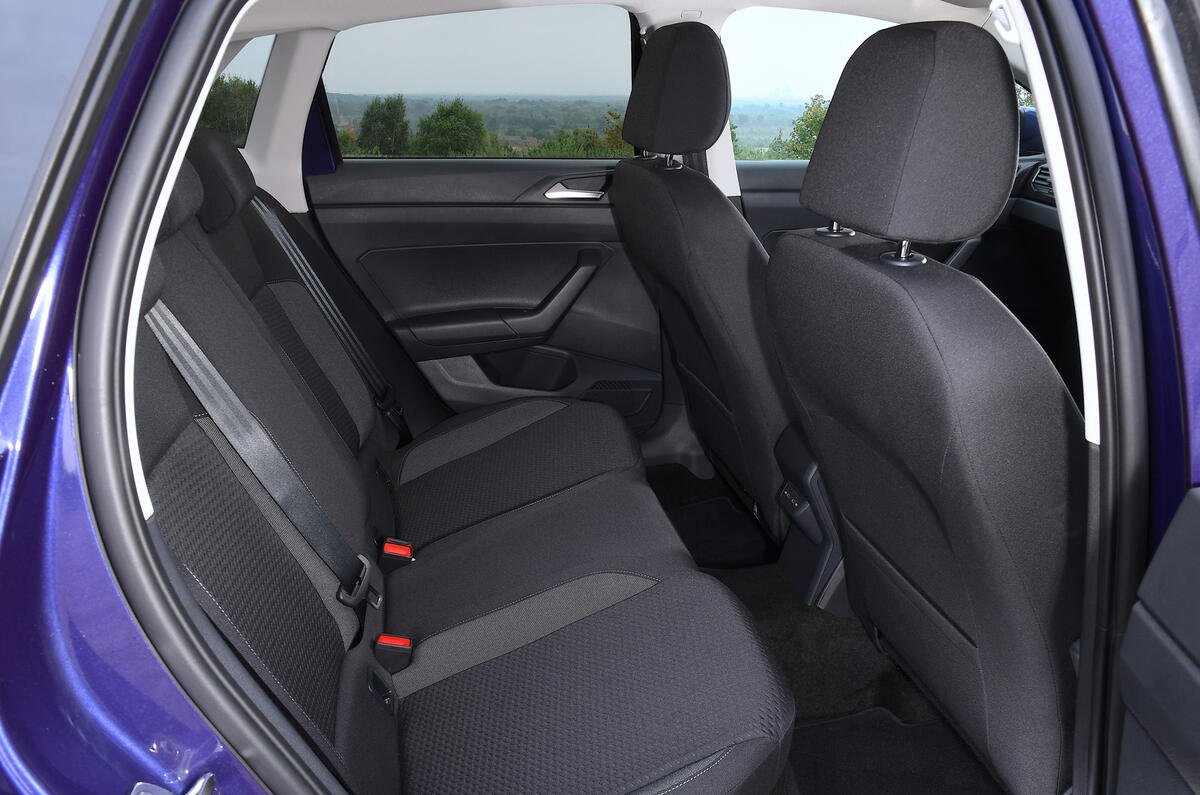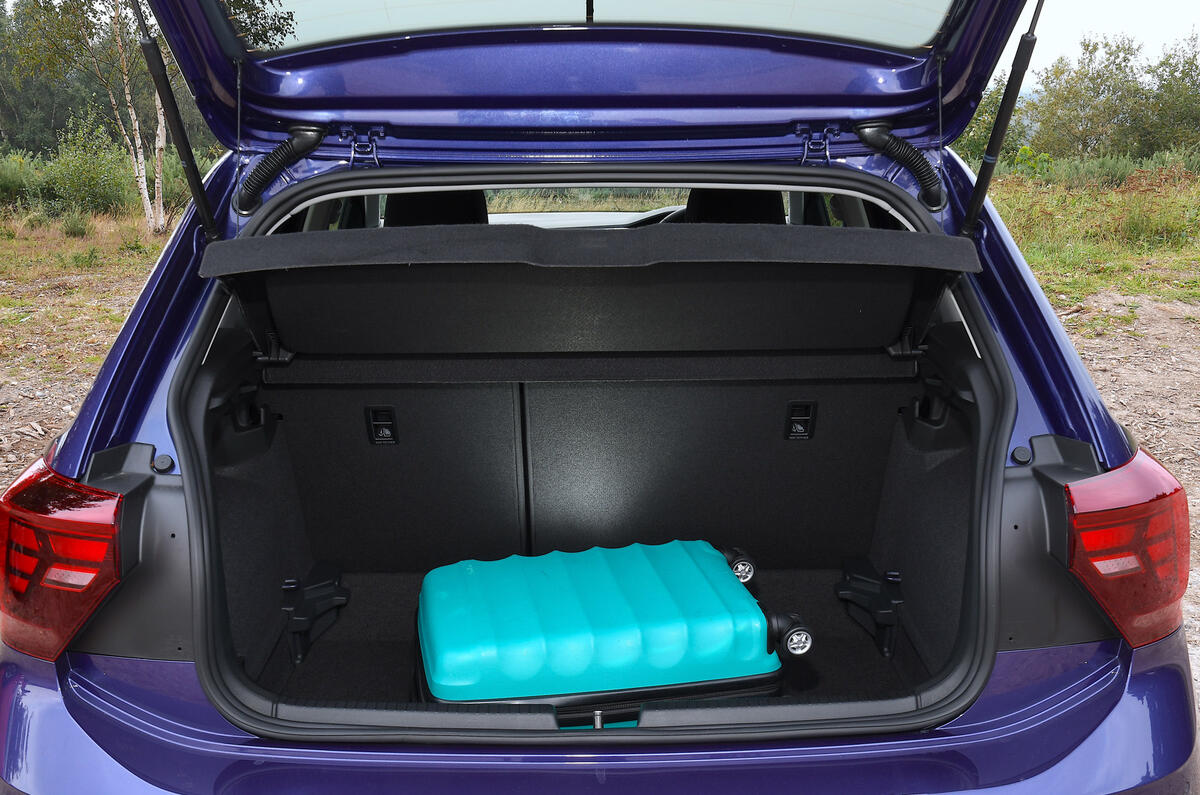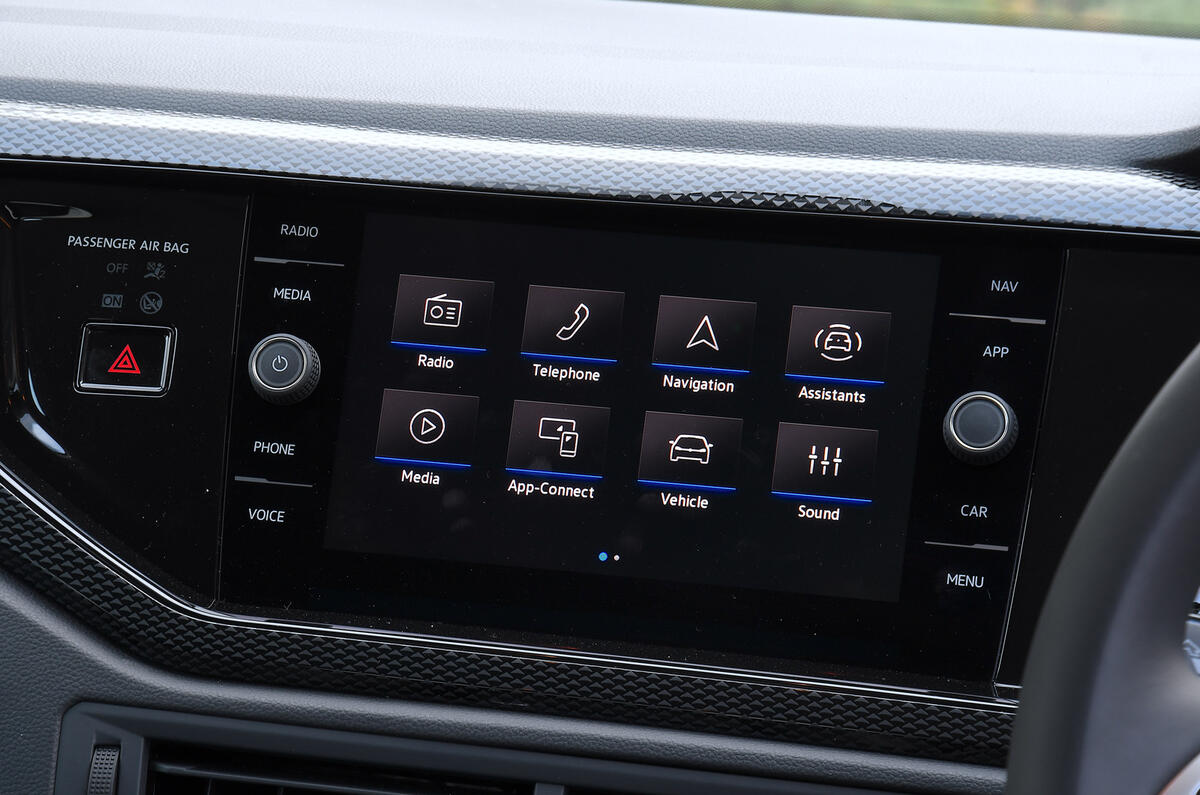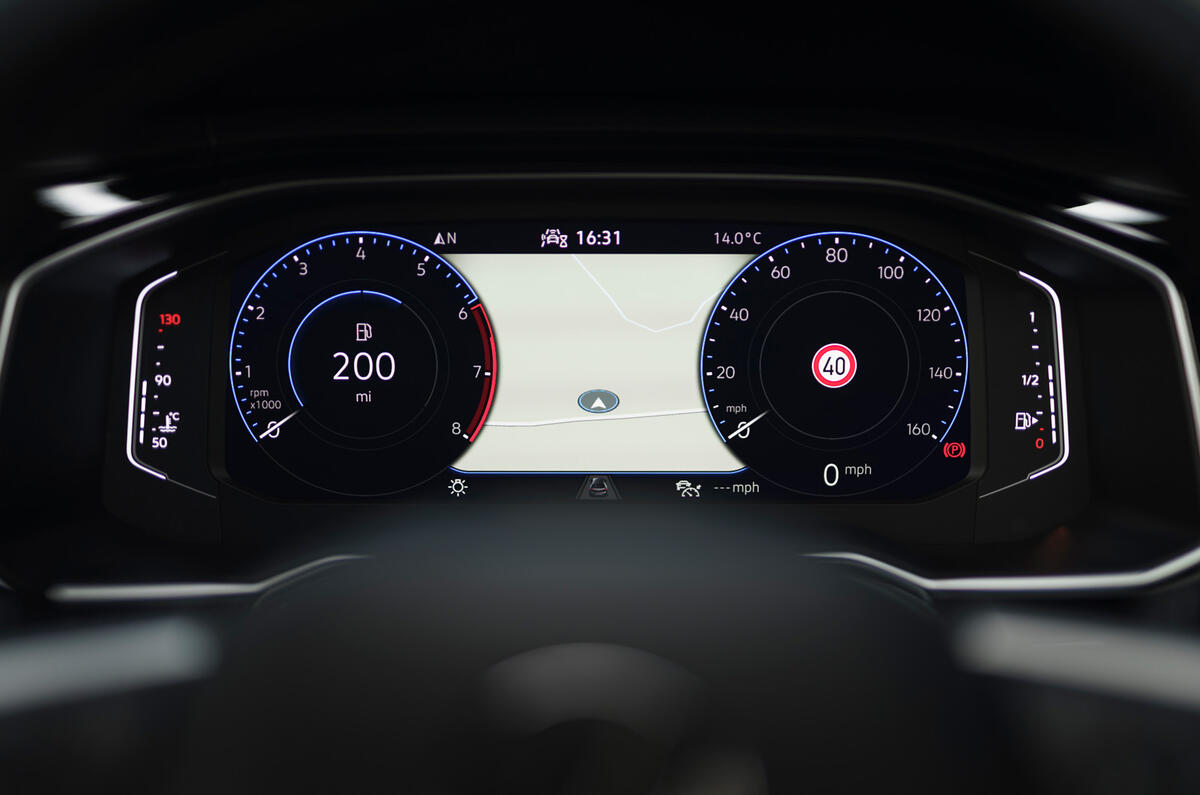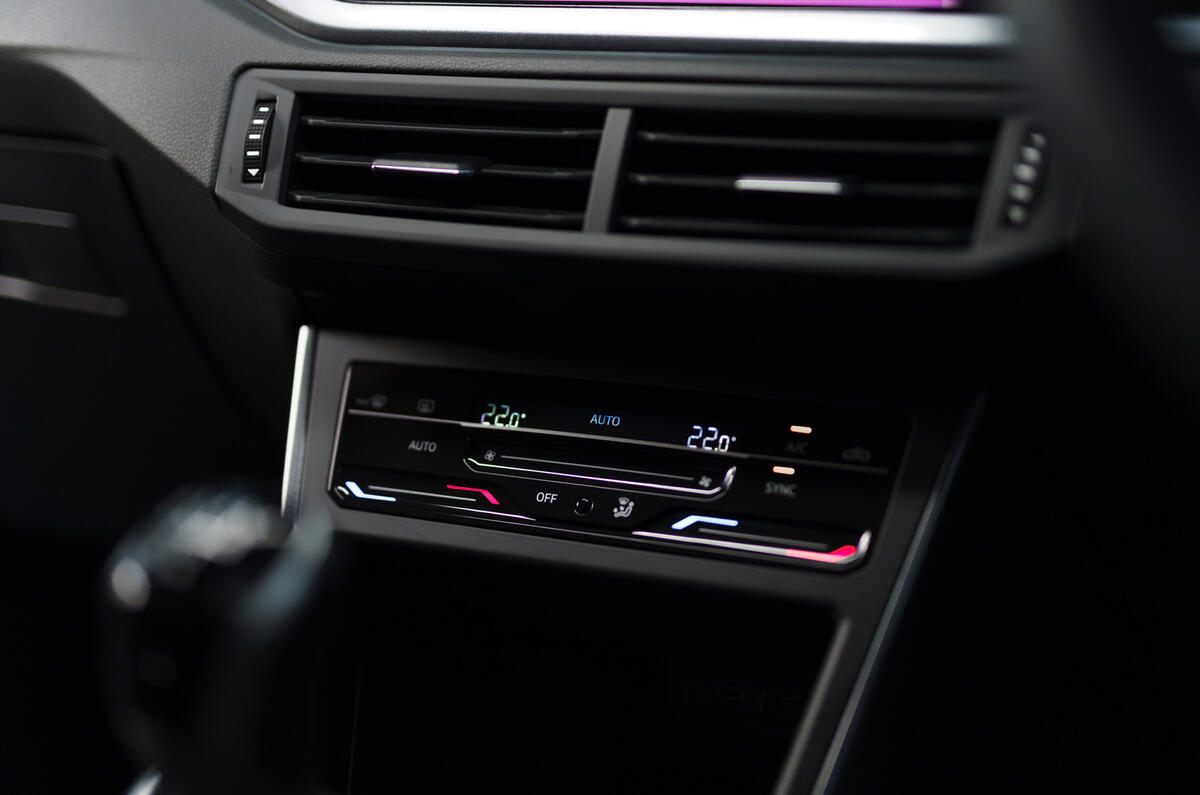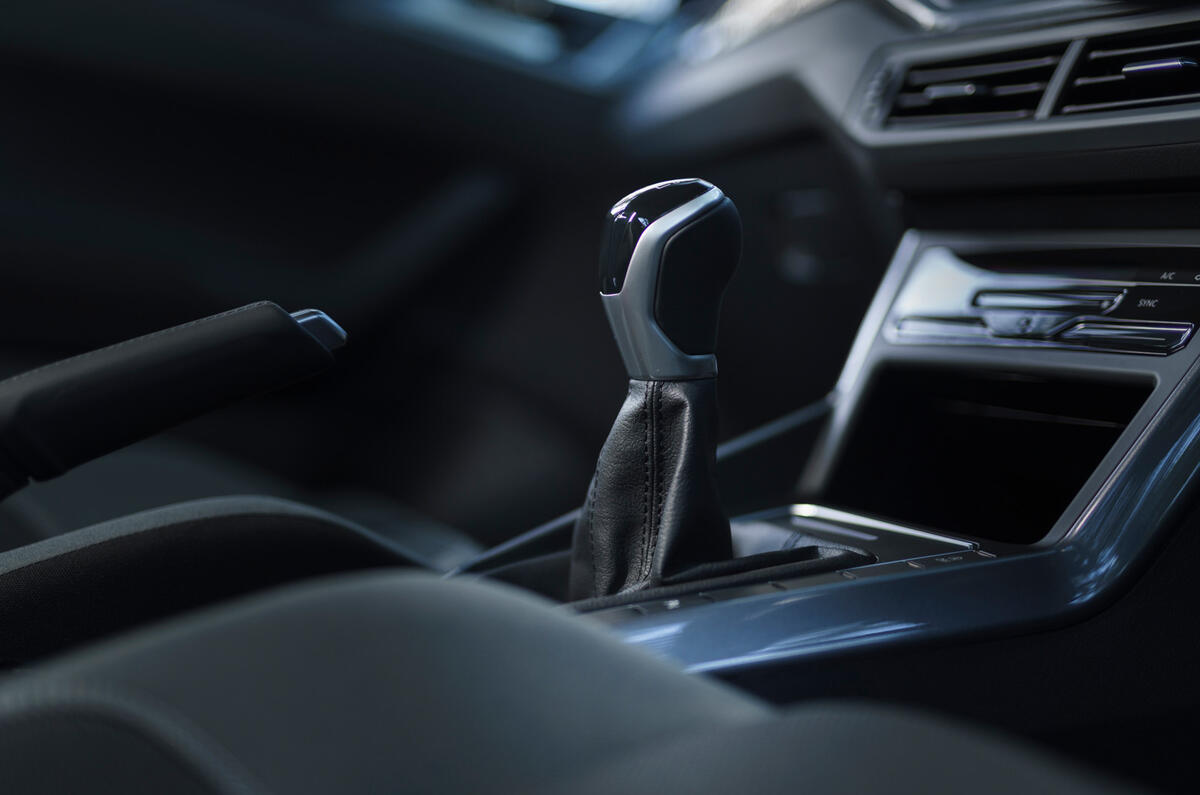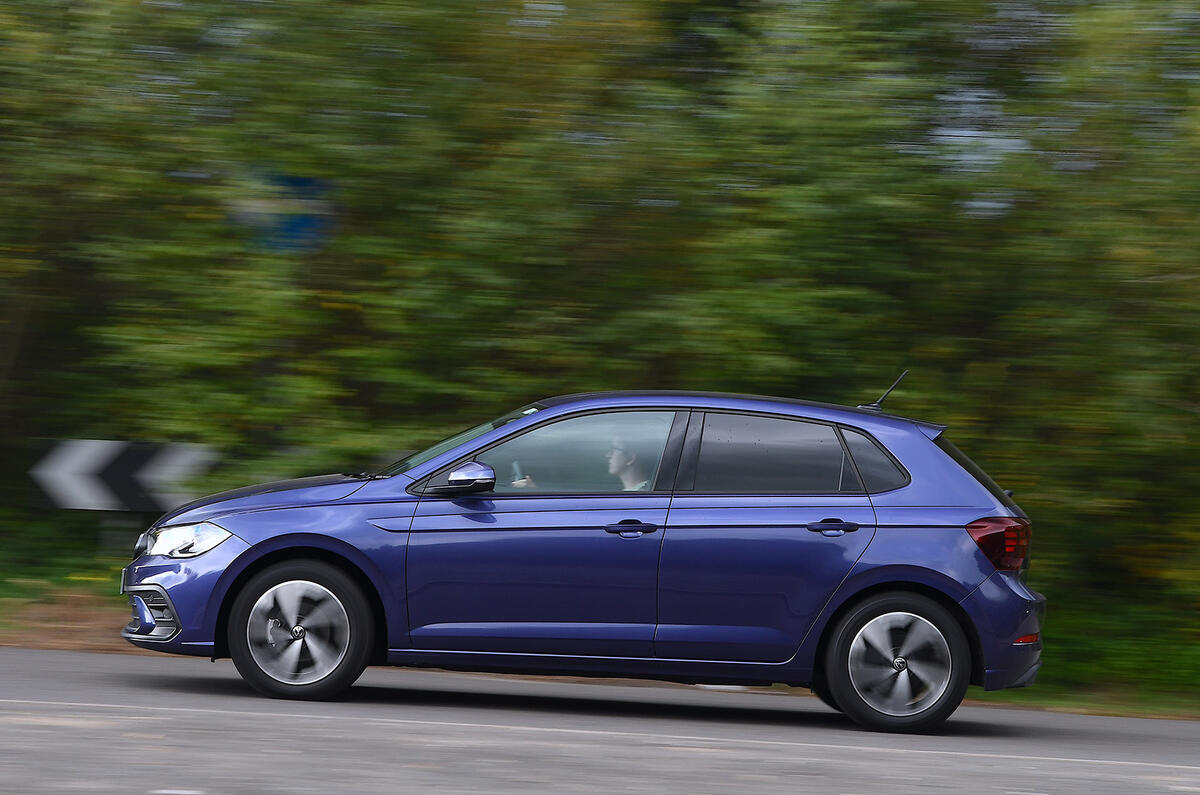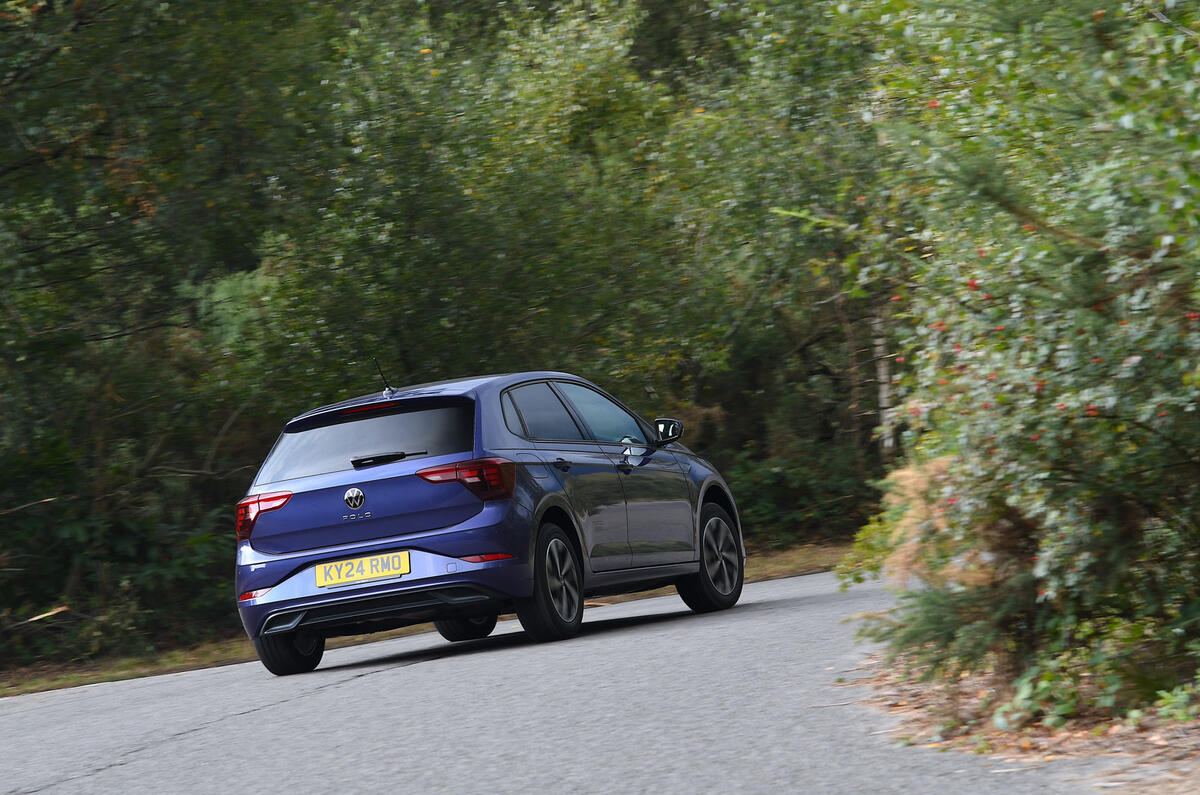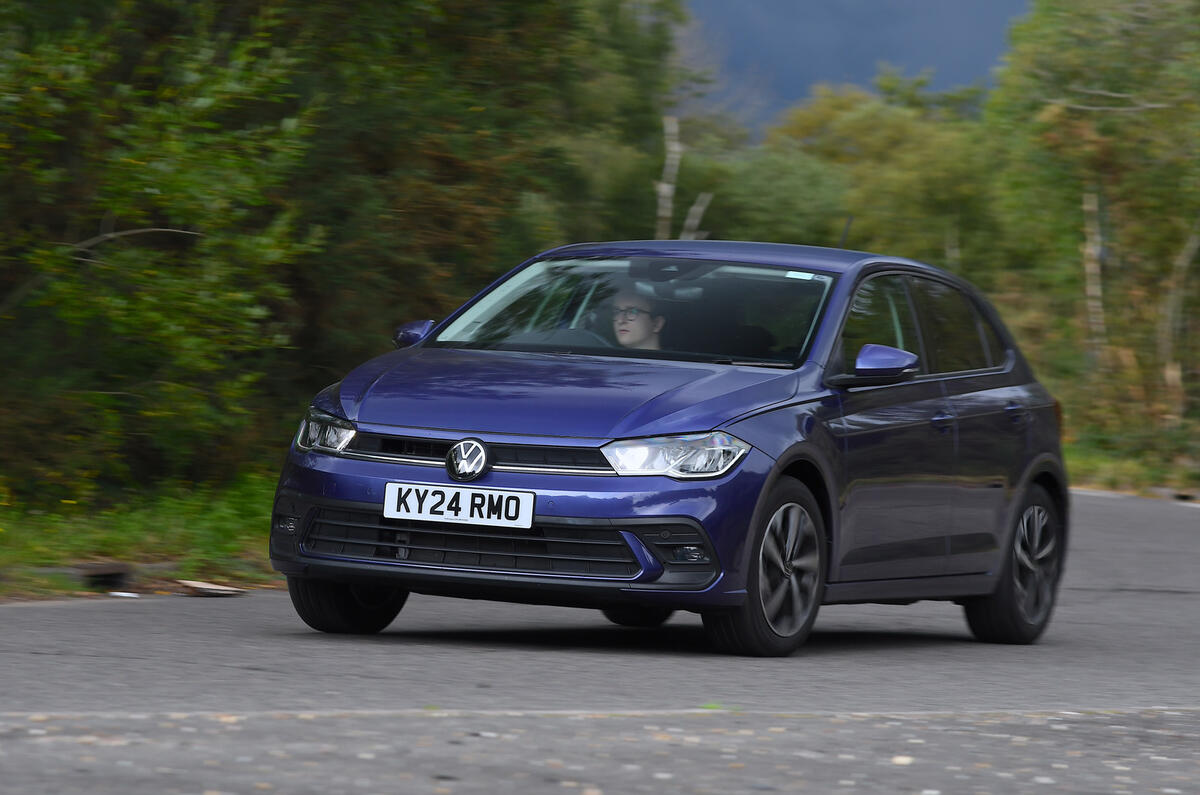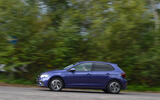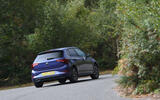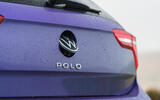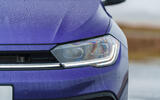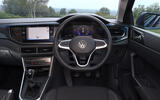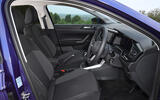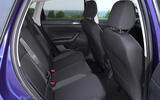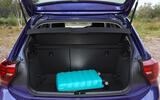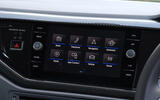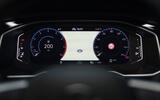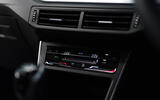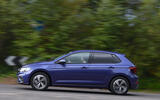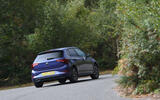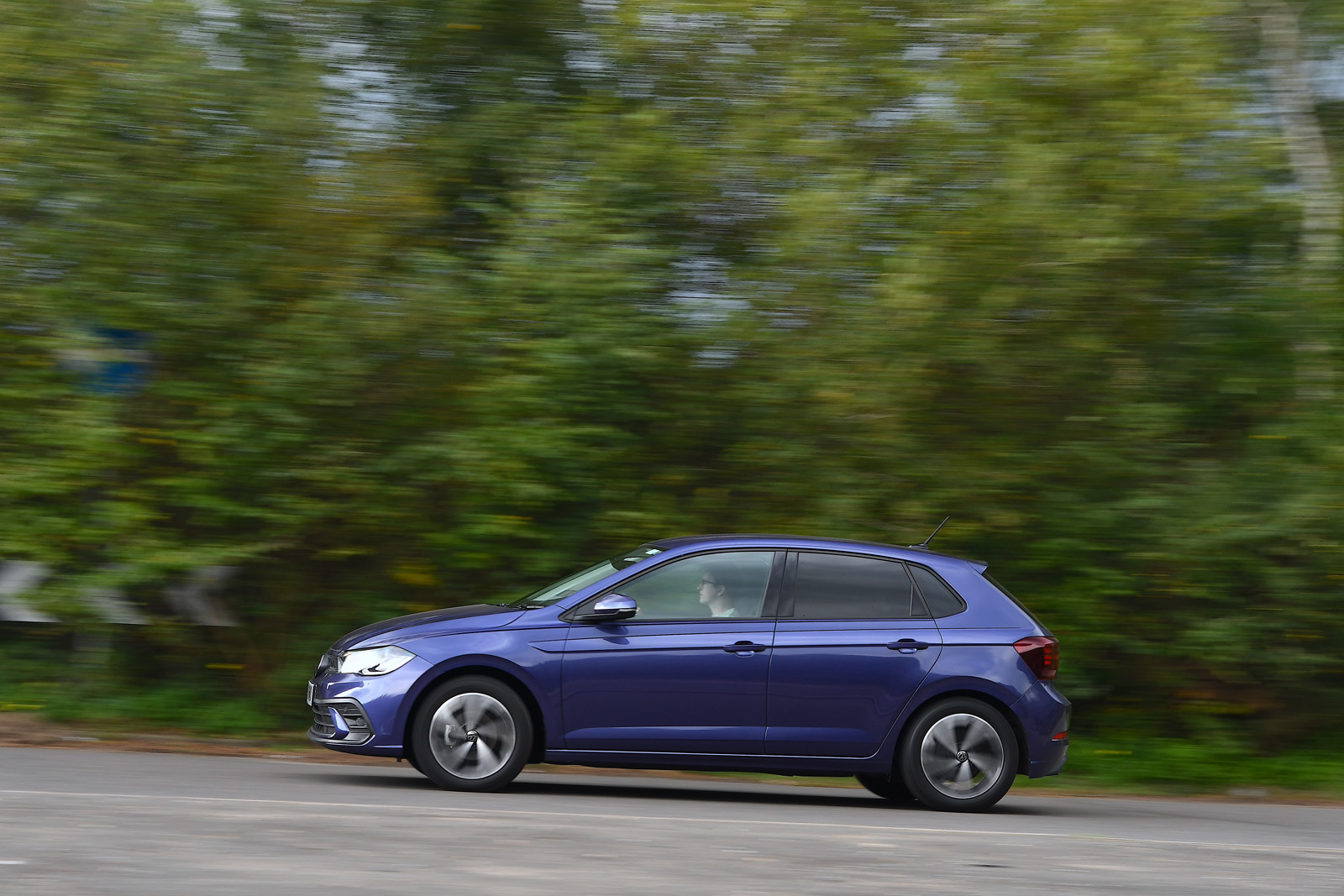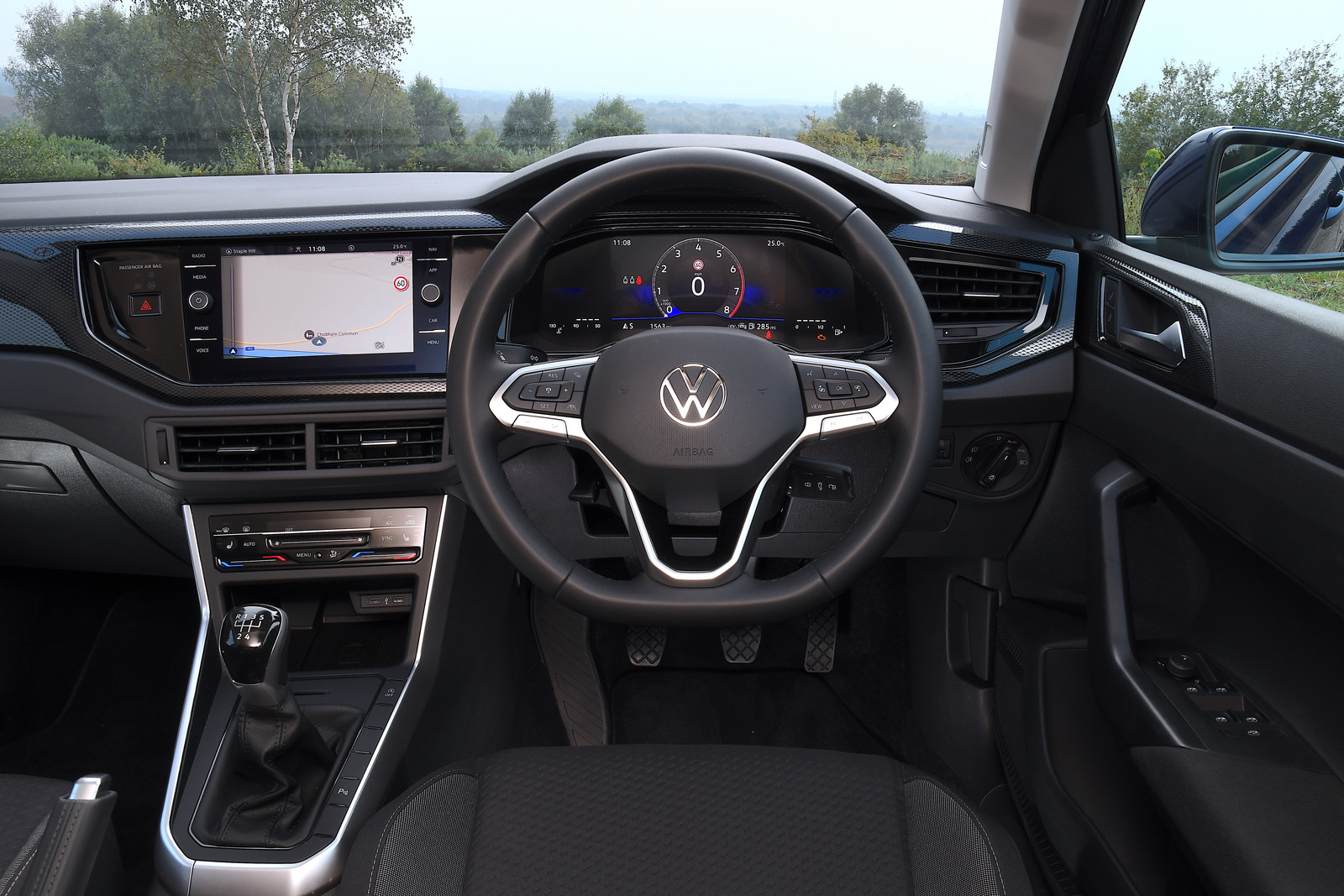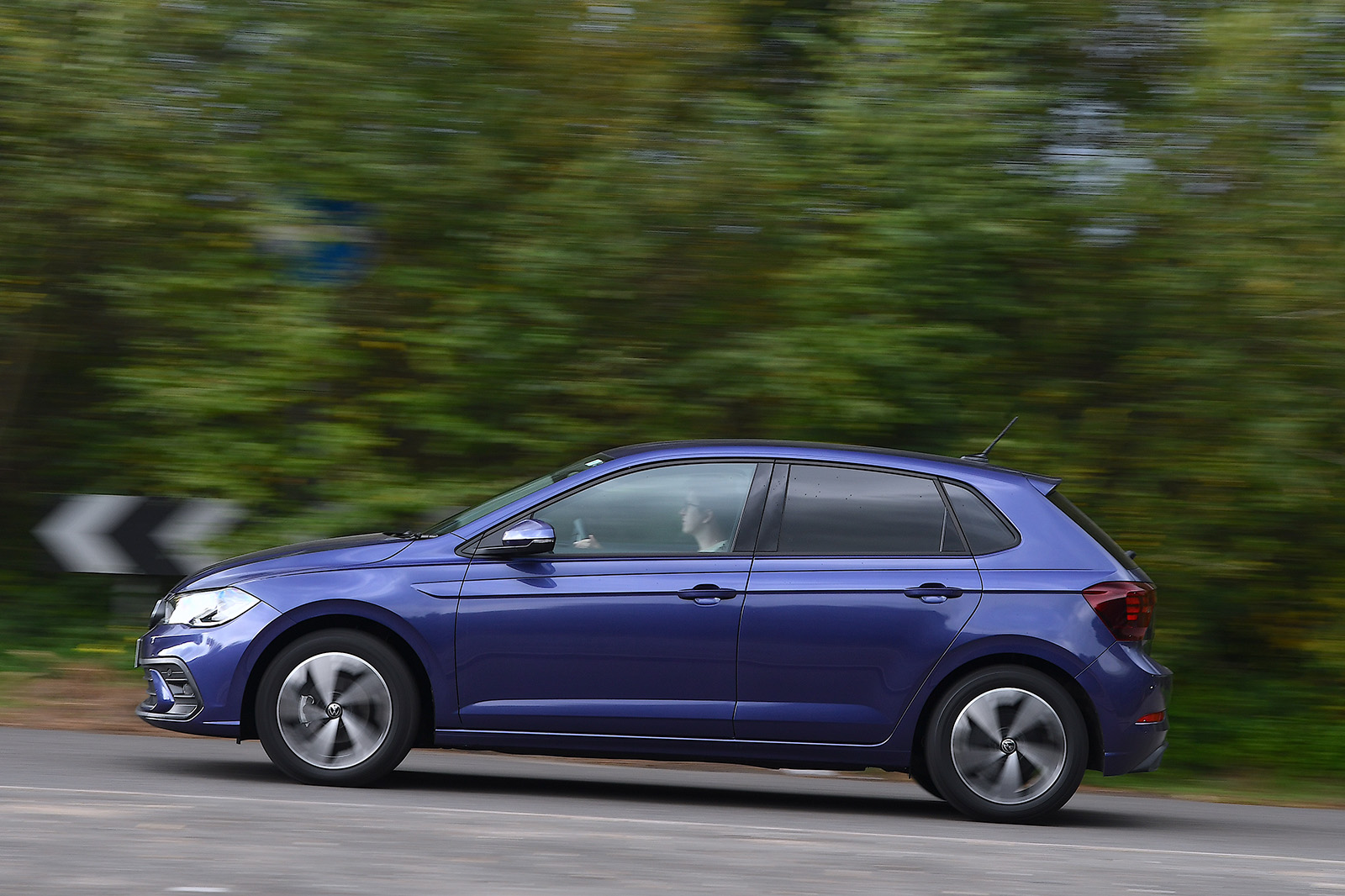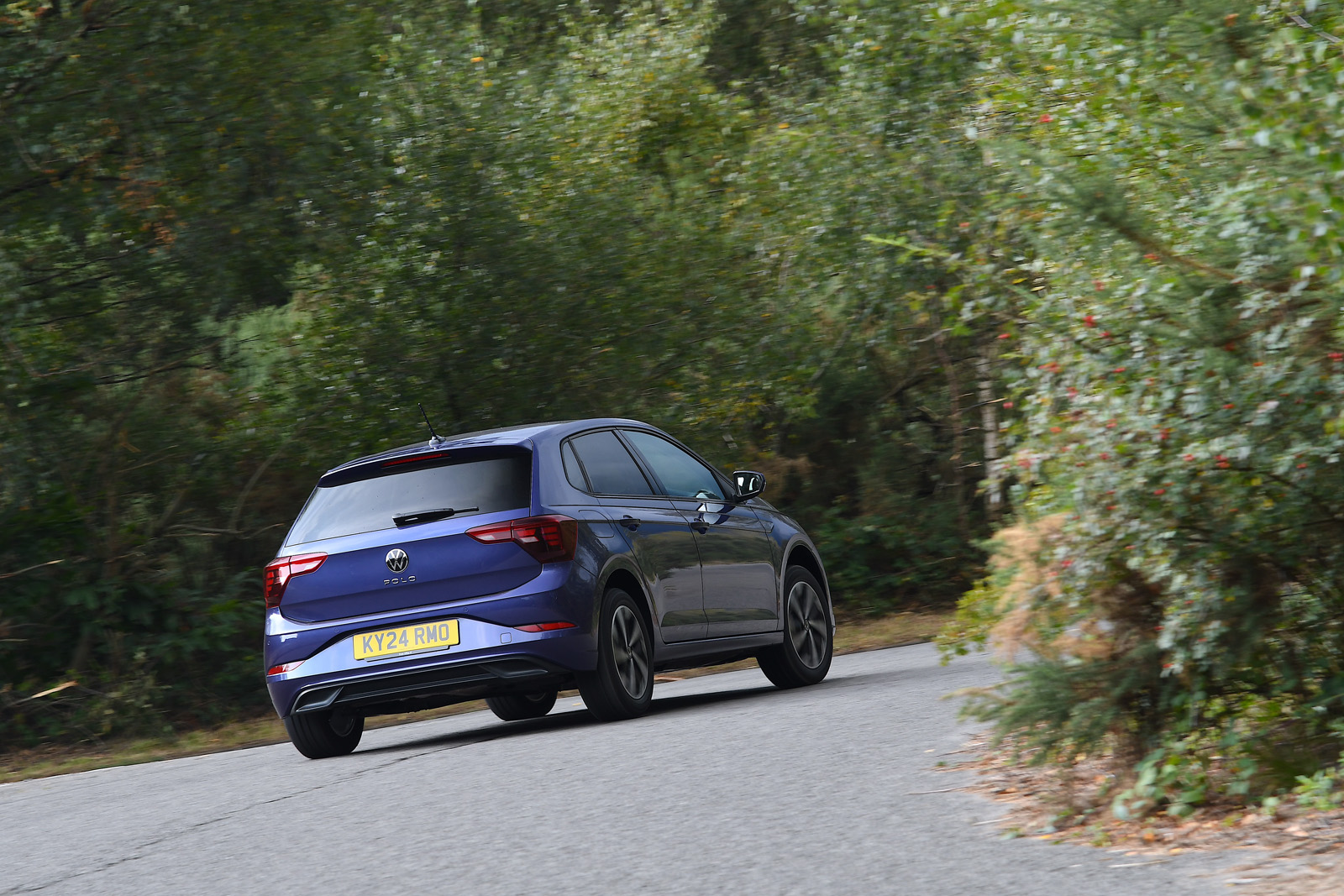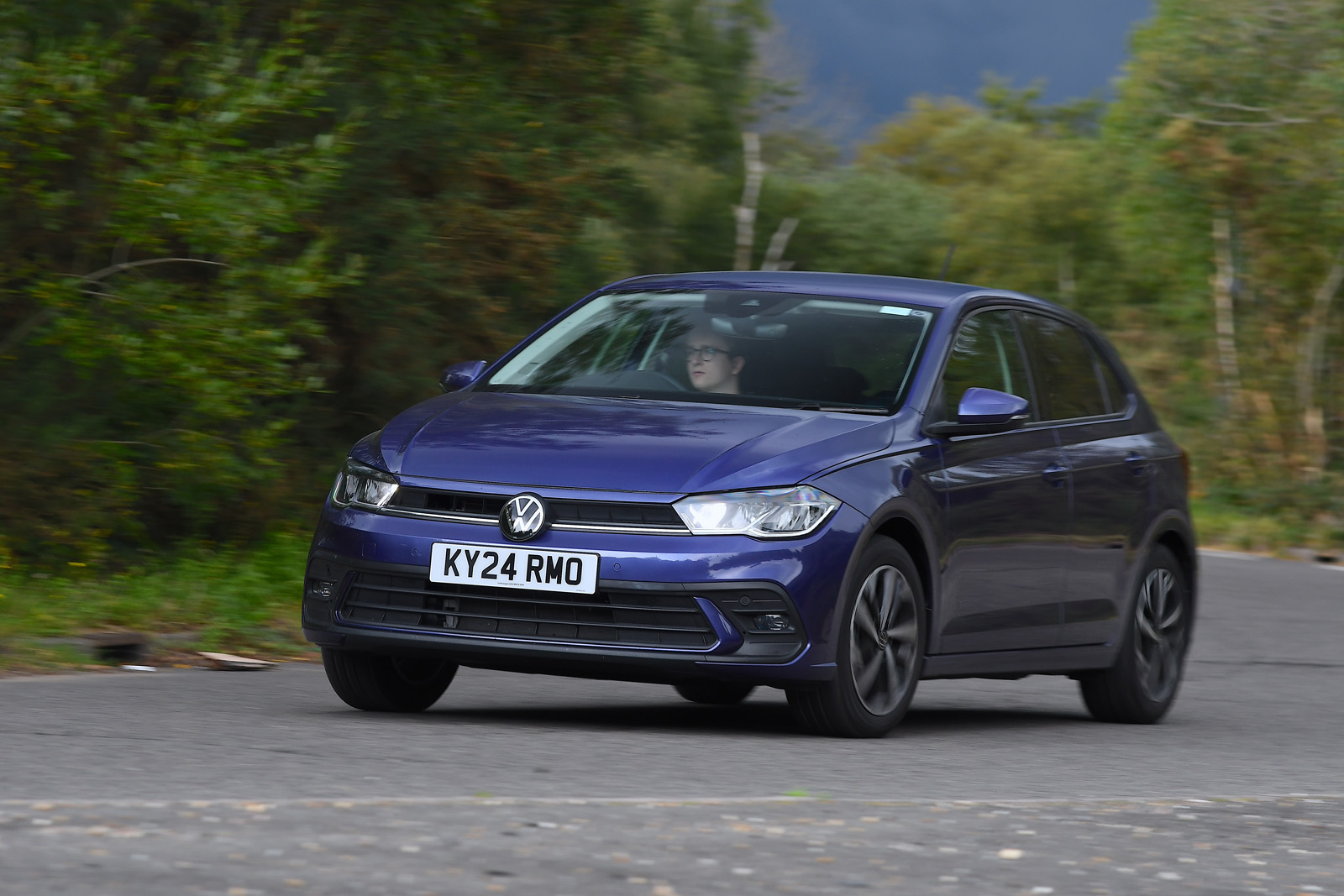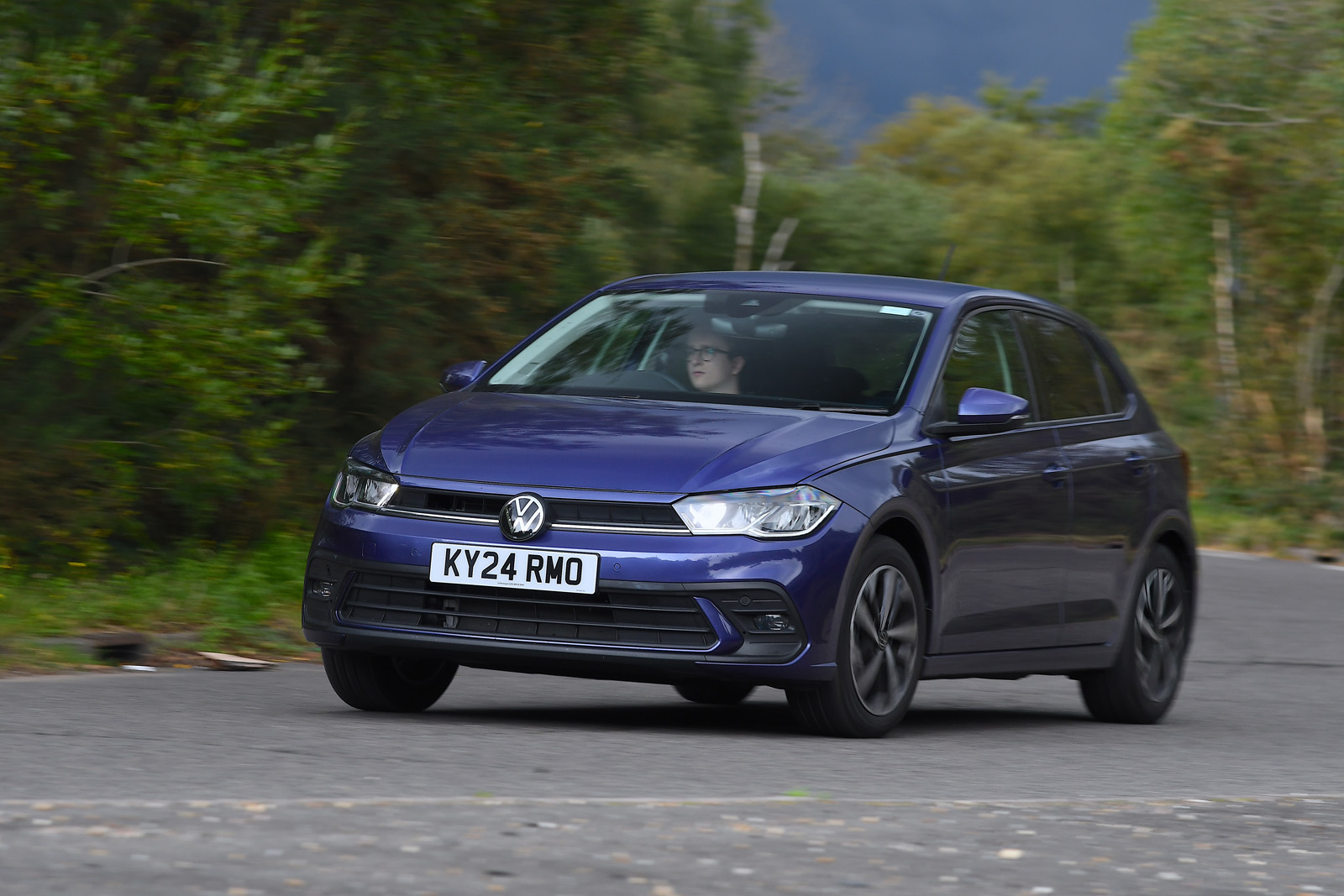The styling of the Polo’s cabin is sufficiently reserved to rob it of much in the way of wow factor, but it is unquestionably a very solidly built, easy-to-use, well-equipped and pleasant small car in which to spend time.
As you’d expect from a VW Group product, everything feels solidly integrated, assiduously finished and fitted, and thoroughly well screwed together, with no wobbles, creaks or flexes when you touch it.
In typical supermini fashion, VW uses hard plastics on the door cards and in the lower reaches of the cabin but they’re grained ones and certainly don’t do the interior’s quality aura any harm, while a squidgier type for the dash top improves tactile quality further.
Earlier versions of the Mk6 Polo had decorative interior inserts that could be matched to the exterior paintwork, but a greyscale array that varies in terms of sheen and pattern depending on trim level is now the norm, which is slightly more dull and can likely be explained by cost-cutting.
The user-friendliness of the air conditioning controls has also been worsened by this. The physical buttons of the previous car have been replaced by a large, touch sensitive pad that does without any sort of haptic feedback. It's quite difficult to use at first, but the controls themselves are recessed which makes them slightly easier to hit when you're on the move.
Space-wise, the Polo remains impressive by B-segment hatch standards, with plenty of headroom in the front and, although loftier passengers may find room for their heads and knees too tight to be truly comfortable in the back, those of up to average height will find they fit in the back with little complaint — compared with the Renault Clio’s rear bench, the VW feels airy.
For those ferrying youngsters about regularly, as is the norm for most cars — not just of this size — Isofix child seat anchorages are located in the outer rear seat positions.
Boot space is 355 litres with the back seats in place and the adjustable floor in its lowest position. Underneath the adjustable floor, you get enough space for a full-sized spare wheel.
Fold the seats down and this will free up a total of 1125 litres, making it one of the roomiest superminis.
Multimedia touchscreens of various sizes are found on almost every Polo, complemented by useful bolt-ons such as Apple CarPlay, Android Auto and voice recognition.
We had no qualms about the system’s functionality, either — displays are clear and responsive, with dedicated shortcut buttons to speed-up navigating through the menus. Plaudits to VW also for maintaining physical controls for volume.
The standard-fit digital instrument cluster is pretty clear to read and the screen makes good use of its real estate, with proper configurability between each of the menu screens. One complaint we do have, however, is that you can't have the speedometer and rev counter on the same screen, which compromises usability.




